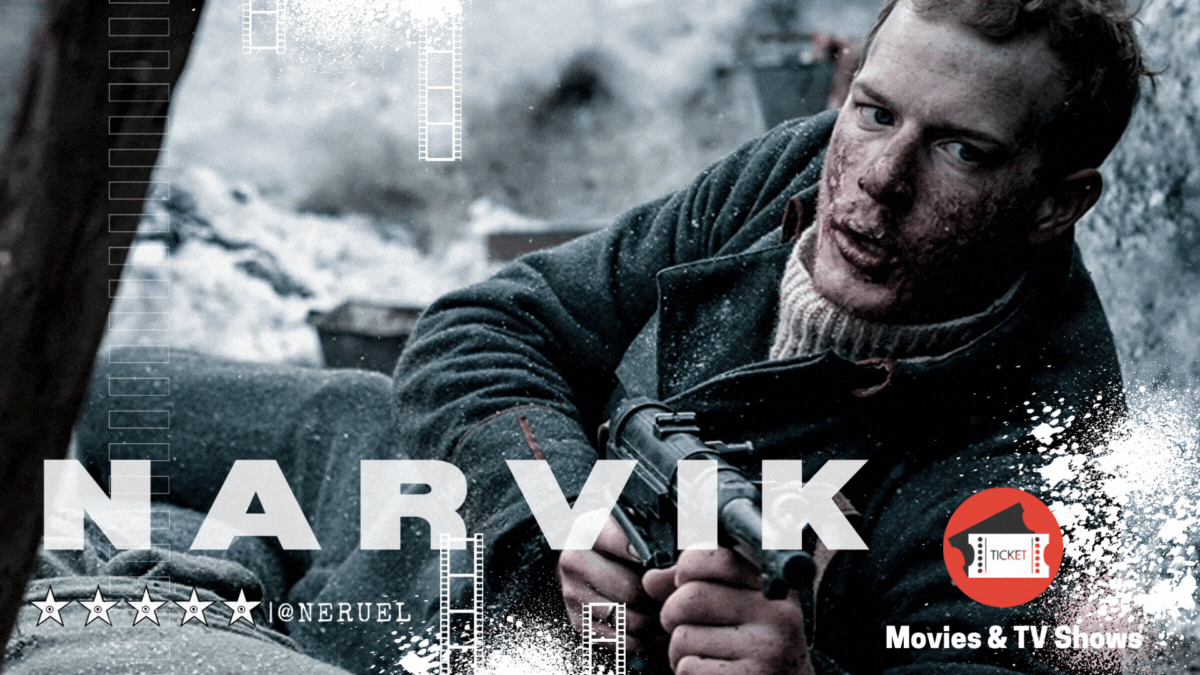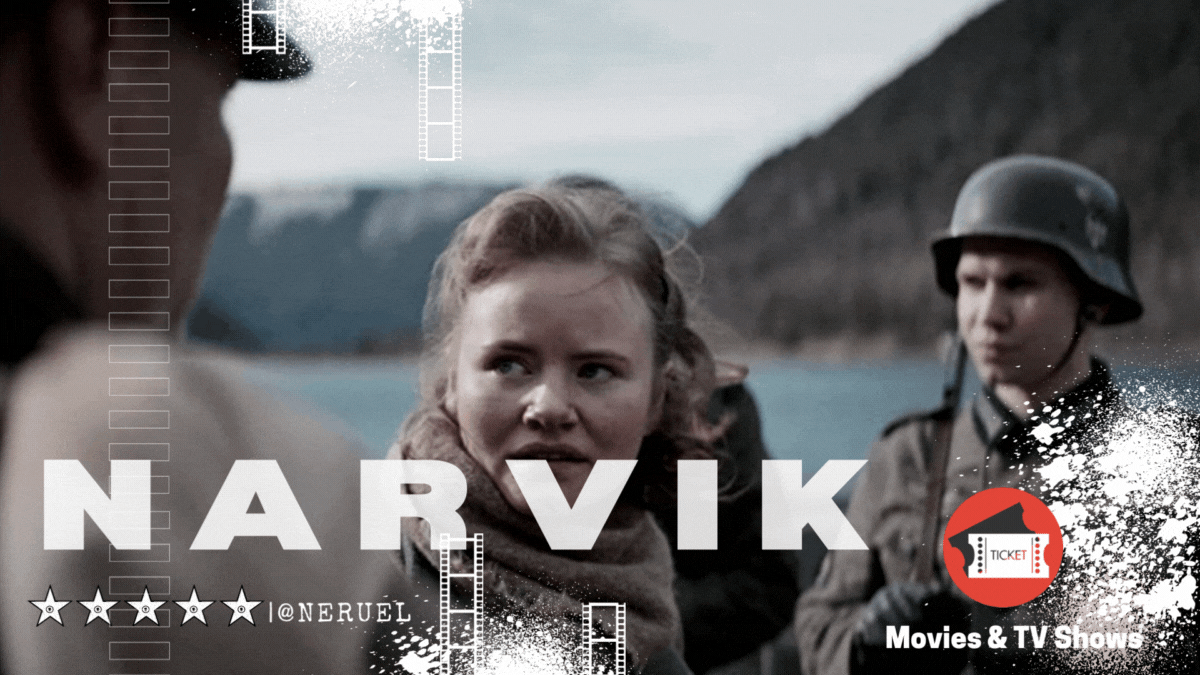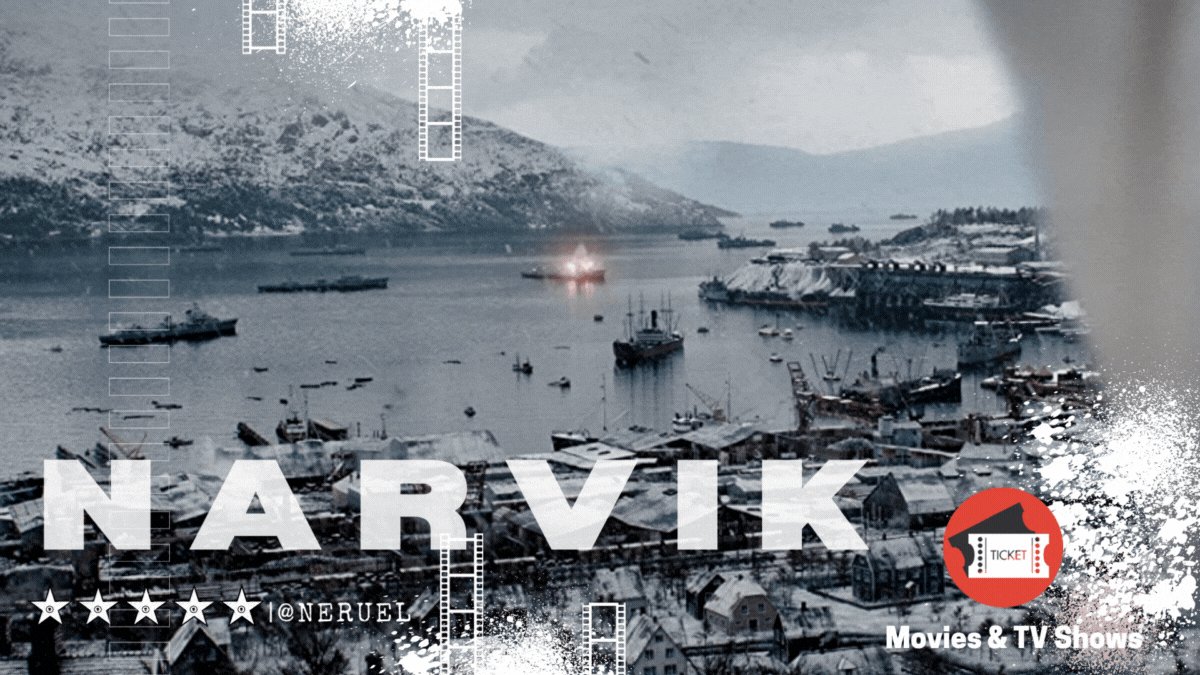Every country has a history, a bond that interweaves its future and its destiny in a permanent way. Power has always been the structure to maintain order, but when it wants to be taken away by one man, and the reins of expansionism are extended, the weakest are the ones who end up losing.
Cada país posee una historia, un lazo que entreteje su futuro y su destino de manera permanente. El poder siempre ha sido la estructura para mantener el orden, pero cuando este desea ser arrebatado por un hombre, y las riendas del expansionismo se extienden, los más débiles son los que terminan perdiéndo.





Is it possible to be neutral in a global conflict? The obvious reality is that it is not. There are only two sides: the good guys and the bad guys. I do not believe in those center positions, that is obviously for double agents, but at the end of the day they end up selling their soul for a few cents, of course, if they call themselves center.
Neutrality in war simply ends up causing massive loss of life, lack of consensus and structural inefficiency of power is a clear reflection of what happened in World War II. That same deficiency is what completely disgorged a nation like mine: neutrality, fragmentation, and competing interests that ended with a total debacle. This is something you will see in this film, where politics and war gradually tear apart that principle of nations: non-interference in the internal affairs of other states.
It has always been Switzerland that upholds the principle of neutrality, war is not the main fabric in the Alps, but today several maintain that position: Finland and Sweden, for example. However, this is only a comparison, for this film retains this from a nation that few would expect, and that is Norway.
Obviously, Norway, along with the other two countries I mentioned in the preceding paragraph, are parts of the Nordic countries that maintained the principle of neutrality during World War II, but such indecision while evil lurks can also become a deadly sin that ends up taking thousands of lives.
What does it really mean to be neutral? Playing for both sides? How unmodest, but in reality it is simply not being interested in the conflict and even less taking part in it, although it would be very bad if there were a minimum of relationship with one of the parties.
Now then, what is at issue in this film? Simple, the self-determination and indeterminacy of nations. Also, the constant struggle of a mother to protect the person she loves the most.
¿Se puede ser neutral en un conflicto global? La realidad evidente es que no. Solamente existen dos bandos: el de los buenos y el de los malos. No creo en esas posiciones de centro, eso evidentemente es para los dobles agentes, pero al fin y al cabo terminan vendiendo su alma por unos cuantos centavos, claro, si se hacen llamar de centro.
La neutralidad en la guerra simplemente termina provocando la pérdida de vidas masivamente, la falta de consenso y la ineficiencia estructural del poder es un reflejo evidente de lo que ocurrió en la segunda guerra mundial. Esa misma deficiencia es la que degolló por completo una nación como la mía: neutralidad, fragmentación y pugnas de intereses que terminaron con una debacle total. Esto es algo que podrá ver en este film, donde la política y la guerra desgarran poco a poco ese principio de las naciones: de la no injerencia en los asuntos internos de otros Estados.
Siempre ha sido Suiza la que enarbola el principio de neutralidad, la guerra no es el principal tejido en los Alpes, pero hoy día varios mantienen esa posición: Finlandia y Suecia, son un ejemplo. Sin embargo, esto es solamente una comparativa, pues este film retiene esto de una nación que pocos lo esperarían y es Noruega.
Evidentemente, Noruega, junto a los otros dos países que mencioné en el párrafo precedente, son partes de los países nórdicos que mantuvieron el principio de neutralidad durante la segunda guerra mundial, pero esa indecisión mientras el mal asecha también se puede convertir en un mortal pecado que termine acabando con miles de vidas.
¿Qué significa realmente ser neutral? Acaso, ¿jugar para los dos bandos? Que poco modesto, pero en realidad es simplemente no interesarse por el conflicto y menos tomar participación en él, aunque resultaría muy mal si existiera un mínimo de relación con una de las partes.
Ahora bien, ¿entonces que se pone en discrepancia en este film? Simple, la autodeterminación y la indeterminación de las naciones. Además, la lucha constante de una madre para proteger a la persona que más ama.




What is the Plot? | ¿Cuál es la Trama?
Narvik has been occupied by the Nazis and Norway's principle of neutrality has been violated, the government has laid down its arms in hiding from its robust but weak military forces. The preaching begins little by little.
The deadly arc of murder comes after the occupation. The politics are woven as a merely bureaucratic and disloyal arc where absolutely nothing matters. Welfare? What is the reason for Norway to lay down its arms? Why was Hitler's Germany interested in that Nordic nation? How long will they be able to resist? Each of these questions is answered in an interesting way in the film.
A country is occupied for purely economic and strategic reasons, strategic? Yes, key geographical positions with international ports, flow of trade or indeed abundance of resources with easy transfer.
The film develops because of the plot of a woman and a military man, the former plays for both sides due to her bilingual ability: she speaks German and Norwegian. The second is someone with an unbreakable will and who outlines the word: Fatherland, for me a very harmful one: "nation is better". Both will fight according to what they believe in and the wishes they want to leave for their country.
Inconsistency in the Scenes
Indeed, it is one of the parts that I think should have been potentially improved. You're at war, there are elements that need to be a little more explicit; that would allow the arguments to be a little more believable.
The script is very good, besides there are three wonderful reflections: a historical sequence, a dramatic one because of the weapons and a moral that expresses a necessary message of survival. Nevertheless, in the scenes of basic points, the confrontation should have been seen a little more or a better artistic point should have been nuanced within the film, but this does not make it lose completely the striking parts.
There are some good scenes, and others that you would think if you watched them very carefully were a bit timid. I happen to like Norwegian productions a lot because of the audiovisual capabilities, but at certain moments they require a bit more of an eye for the transcendental elements.
One thing I didn't understand is that a hotel would be constantly bombed and still be in good condition. real? It can happen if the structure had good development, but it would still suffer damage inside.
Narvik ha sido ocupada por los nazis y se ha violado el principio de neutralidad de Noruega, el gobierno ha depuesto las armas a escondidas de sus robustas, pero débiles fuerzas militares. La predicación comienza poco a poco.
El arco mortal de los asesinatos viene luego de la ocupación. La política se teje como un arco meramente burócrata y desleal donde no importa absolutamente nada. ¿Bienestar? ¿Cuál es la razón de que Noruega depusiera las armas? ¿Por qué la Alemania de Hitler estaba interesada en esa nación Nórdica? ¿Qué tanto podrán resistir? Cada una de estas preguntas se responden de una manera interesante dentro del film.
Un país es ocupado por razones meramente económicas y estratégicas, ¿estratégicas? Sí, posiciones geográficas claves con puertos internacionales, flujo de comercio o en efecto abundancia de recursos con fácil traslado.
El film se desarrolla en razón de la trama de una mujer y un militar, la primera juega para ambos lados debido a su capacidad bilingüe: habla alemán y noruego. El segundo es alguien con una voluntad inquebrantable y que esboza la palabra: patria, para mí una muy dañina: es mejor la Nación. Ambos lucharán según lo que creen y los deseos que desean dejar para su país.
Inconsistencia en las Escenas En efecto, es una de las partes que pienso que debieron mejorar de manera potencial. Estás en la guerra, existen elementos que deben ser un poco más explícitos; eso permitiría que los argumentos fueran un poco más creíbles.
El guion es muy bueno, aparte existe tres reflejos maravillosos: una secuencia histórica, una dramática por las armas y una moraleja que plasma un mensaje necesario de supervivencia. No obstante, en las escenas de puntos básicos se debió ver un poco más el enfrentamiento o matizar mejor un punto artístico dentro del film, pero esto no hace que pierda por completo las partes llamativas.
Existen escenas buenas, y otras que pensáras si las observas con mucho cuidado que fueron un poco tímidas. Casualmente me gustan mucho las producciones noruegas debido a la capacidad audiovisual, pero en ciertos momentos requieren una visión un poco más marcada de los elementos transcendentales.
Algo que no entendí es que un hotel fuera bombardeado constantemente y estuviese en buen estado. ¿Real? Puede ocurrir si la estructura tuvo un buen desarrollo, pero aun así sufriría daños en su interior.





Politics of Death? | ¿Política de Muerte?
There is a lot of it in the plot, but the worst thing about it is the romantic tone the film gives to the Nazis, it seems like a point where they are looking to turn salt into sugar. There was a phrase that I cannot forget: we are not like that, so what were they like? Romanticism submerged in plenitudes, although everything ends up changed in a transcendental instant and it is when the war arrives to Narvik.
When violence is on the streets, who should you trust? The obvious answer is: no one. Simply put, what is left is to resist if you are a simple civilian. War is harmful, it is toxic, and it has a horrible consequence: innocent lives are killed.
In the film you will see several shocking scenes, one of the most striking is the burning and bombed city.
A Mother's Love
Fatherland? Nation? Money? Comfort? None of that matters to a mother, Kristine Hartgen played the character of Ingrid and the most involving thing about her role is that strength of will to protect her son from the outrages. Here it does not matter a piece of land, it is not invaluable the fact that your country surrendered and even less that it is at war. The only side a mother can choose is to save her child's life.
Is it wrong? Patriots will see it wrong, but the life of a child for any human being is the most important thing after all. This message within the scenes of this movie is really powerful, because it makes something very clear: i am not part of the war, you brought us into it.
Such a conjugation has a profound moral, it also sends a double criticism both to the politics of that time and the present. War will never be an acceptable option for humanity and even less so for a mother who will put her child's life, even her own, above all else.
Existe mucho de ella dentro de la trama, pero lo peor de esto es ese tono romántico que el film le da a los nazis, pareciera un punto en donde buscan convertir la sal en azúcar. Hubo una frase que no puedo olvidar: nosotros no somos así, ¿entonces cómo eran? Romanticismo sumergido en plenitudes, aunque todo termina cambiado en un instante transcendental y es cuando la guerra llega a Narvik.
Cuando la violencia se encuentra en las calles, ¿en quién debes confiar? La respuesta evidente es: nadie. Simplemente, lo que queda es resistir si eres un simple civil. La guerra es dañina, es tóxica y además tiene una consecuencia horrible: muertes de vidas inocentes.
En el film verá varias escenas impactantes, una de las más sorprendentes es la ciudad en llamas y bombardeada.
El Amor de una Madre ¿Patria? ¿Nación? ¿Dinero? ¿Comodidad? Nada de eso le interesa a una madre, Kristine Hartgen interpretó el personaje de Ingrid y lo más envolvente de su papel es esa fuerza de voluntad para proteger a su hijo de los desmanes. Aquí no importa un pedazo de tierra, no es invaluable el hecho de que tu país se rindiera y menos que esté en guerra. El único bando que puede elegir una madre es el de salvar la vida de su hijo.
¿Está mal? Los patriotas lo verán mal, pero la vida de un hijo para cualquier ser humano es lo más importante después de todo. Este mensaje dentro de las escenas de esta película es realmente poderoso, porque deja algo muy claro: yo no soy parte de la guerra, ustedes nos inmiscuyeron en ella.
Tal conjugación tiene una moraleja profunda, también envía una doble critica tanto a la política de esa época como la actual. La guerra nunca será una opción aceptable para la humanidad y menos para una madre que pondrá por encima de todo, la vida de su hijo, incluso la de ella.





Patriot Will
What happens if the Will is broken? Are you a traitor? Are you insubordinate? There are issues that go beyond that when a military member makes the decision to protect the most important thing: family. True, we may love where we come from, but the most important thing is the people we want to protect. What's the point of giving everything if there will be no one at home for you when you return? That's a confrontation faced by Major Omberg, played by actor Henrik Mestad.
I can't deny that this desire to give everything for a country makes the blood run hot, but it really has one and only one motive. If this is called into question, you simply lose the reason to fight in the mind of the person seeking to protect something precious. We are human and no one is exempt from their emotions.
Powerful Scenes
There are three scenes that I liked powerfully within the film, the first is how they reflect the importance of Norway to Germany during the WWII conflict. Another is when the Norwegians understand that they have been deceived and thousands are dying and being enslaved. The last part that I found shocking is when Ingrid is running very hard during the war camp and bullets are passing everywhere.
A doctor is the only option she has to save her son, what will Ingrid do? What is this mother capable of doing for her son? Does politics really matter?
There is nothing more heartbreaking than to see how humanity is submerged in constant confrontation solely and exclusively for the welfare of a few. Those few who destroyed peace and led the planet to a convulsion of great proportion.
This film is a small reflection of what happened and intertwines the damage to a nation that remained neutral, but ended up succumbing to the evil of those who wanted more power. Cruelty, slavery and death, that is all they left in the world. A fracture that left the hearts of many people broken into pieces.
War only serves to exalt the false greatness of some, while the weakest are the ones who lose everything.
Voluntad Patriota
¿Qué pasa si la Voluntad se parte? ¿Eres un traidor? ¿Eres un insubordinado? Existen cuestiones que van más allá cuando un militar toma la decisión de proteger lo más importante: familia. Es cierto, podemos amar el lugar de donde venimos, pero lo más importante son las personas que deseamos proteger. ¿Qué razón tiene darlo todo si no habrá nadie en casa para ti cuando regreses? Ese es un enfrentamiento que afronta el Major Omberg, papel interpretado por el actor Henrik Mestad.
No puedo negar que ese deseo de darlo todo por un país hace encender la sangre, pero realmente esto tiene un solo y único motivo. Si esto se pone en tela de juicio, simplemente se pierde la razón de lucha en la mente de la persona que busca proteger algo preciado. Somos humanos y nadie está exento de sus emociones.
Escenas Potentes
Hay tres escenas que me gustaron poderosamente dentro del film, la primera es como reflejan la importancia de Noruega para Alemania durante el conflicto de la segunda guerra mundial. Otra es cuando los noruegos entienden que han sido engañados y miles están muriendo y siendo esclavizados. La última parte que me pareció impactante es cuando Ingrid corre con mucha fuerza durante el campo de guerra y las balas pasan por todas partes.
Un médico es la única opción que tiene para salvar a su hijo, ¿qué hará Ingrid? ¿Qué es capaz de hacer esta madre por su hijo? ¿Realmente la política interesa?
No existe nada más desgarrador que ver como la humanidad está sumergida en el constante enfrentamiento única y exclusivamente por el bienestar de unos pocos. Esos pocos que destruyeron la paz y llevaron al planeta a una convulsión de gran proporción.
Este film es un pequeño reflejo de eso que sucedió y que entrelaza el daño a una nación que se mantuvo neutral, pero que terminó sucumbida ante la maldad de aquellos que deseaban más poder. Crueldad, esclavitud y muerte, eso es lo único que ellos dejaron en el mundo. Una fractura que dejó el corazón de muchas personas partido en pedazos.
La guerra únicamente sirve para enaltecer la falsa grandeza de algunos, mientras los más débiles son los que pierden todo.



